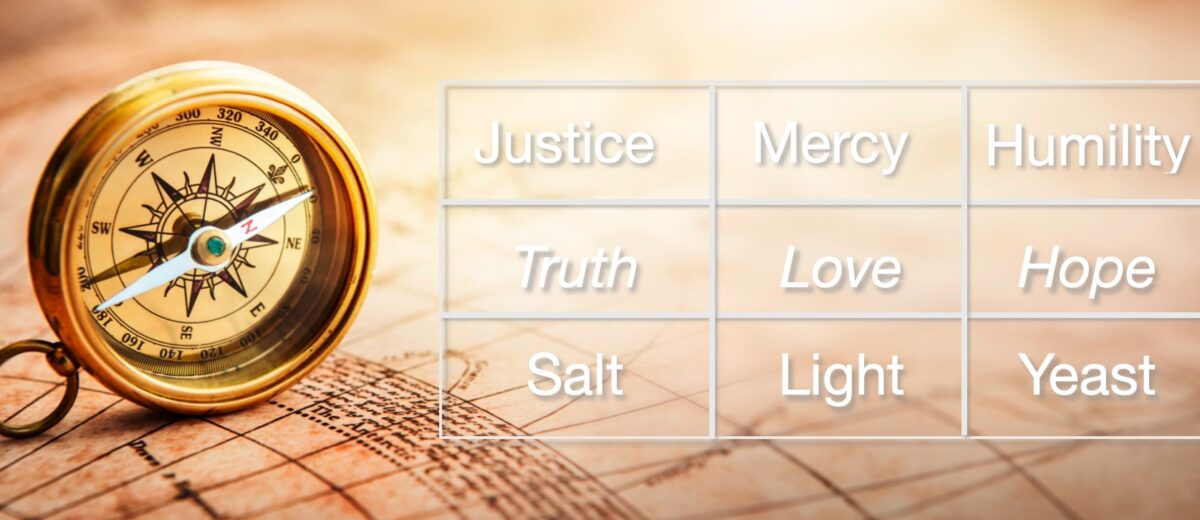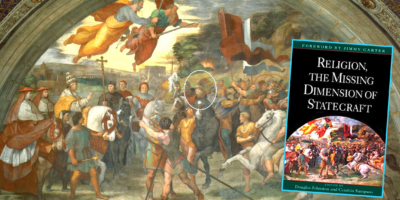How should followers of Jesus respond in a time of political turmoil and cultural fragmentation, when the loudest voices often drown out the wisest?
Last night I reflected on this question with a group of young professionals in Brussels. We began with the ancient words of the prophet Micah: “What does the Lord require of you? To act justly, to love mercy, and to walk humbly with your God.” (Micah 6:8) These three virtues—justice, mercy, and humility—offer a compass for our conduct in an age of polarisation.
Acting Justly: Anchored in Truth
Justice begins with truth. In a time when misinformation and manipulation run rampant, Christians must be people of truth—both factual and moral. We cannot manipulate truth, even if it serves our argument. To act justly means to pursue what is right, not what is merely advantageous or popular.
Justice calls us to see the image of God in every person – even those whose views we find objectionable.
Justice resists the tribal instinct to divide the world into ‘us’ and ‘them’. Justice refuses to weaponize faith for political gain.
Acting justly means speaking truth to power – exposing the lies and half-truths. It means speaking truth in love—to our neighbours, to our communities, and to our own hearts. It means seeking the common good – the good of all, not just our own tribe – especially the marginalised and voiceless.
Justice is not vengeance; it is restorative. Justice longs for relationships and societies to be set right, not simply punished. Justice seeks shalom. Justice stands as a quiet revolution against the shouting matches of our age: it listens, discerns, and heals.
Loving Mercy: Grounded in Love
Mercy is the posture of love in a broken world. It recognises that all of us stand in need of grace. In a polarised culture, mercy looks like patience, forgiveness and empathy. Mercy chooses to understand before condemning.
The parable of the Good Samaritan instructs us that to love mercy is to treat ‘the other’, our opponents, not as enemies to be destroyed but as neighbours to be loved. Mercy transcends tribe and ideology. Mercy crosses boundaries, heals wounds, and restores dignity.
Mercy also calls us to resist the cynicism that saturates political life. When everything becomes a power game, mercy reminds us that compassion is the most transformative force on earth. We can practice mercy in our conversations—around dinner tables, in political debates or on social media—by refusing to humiliate, caricature, or dehumanize those who differ from us.
Loving mercy does not allow us to retreat from the public square; but to enter it with gentleness. Mercy enables us to engage culture not as culture warriors, but as culture healers—people who speak truth seasoned with grace.
Walking Humbly: Rooted in Hope
Humility is a rare virtue in public life today. In an age of outrage and self-promotion, walking humbly is countercultural. Humility reminds us we are not the saviours of the world—Christ is. We do not have all the answers; we are still learners in the school of grace.
Humility keeps us from idolising political movements or leaders. Humility allows us to confess when we have been wrong. It frees us to listen before speaking, to learn from others, and to trust that God is at work even in ways we do not understand.
Walking humbly is ultimately an act of hope. It trusts that God’s purposes are not thwarted by human folly or failure. While justice grounds us in truth and mercy roots us in love, humility bouys us with hope—the quiet confidence that truth wil prevail, and light will overcome darkness. Hope reminds us that the story is not yet finished.
Justice, mercy and humility are thus grounded on truth, love, and hope.
Truth without love becomes harsh and divisive; love without truth becomes sentimental and weak; hope without either becomes naïve. Truth confronts lies, but it does so with love. Love builds bridges, but it does so without abandoning truth. Hope sustains both, reminding us that the story is not yet finished.
Jesus described the impact of his followers who incarnate these virtues in the world with yet another triplet: as ‘the salt of the earth’, ‘the light of the world’ and ‘yeast in the dough’.
Salt preserves and adds flavour—it prevents decay. Light reveals and guides—it dispels fear. Yeast works invisibly and pervasively – it transforms the whole from within.
In times of culture war, the option is neither withdrawal nor domination. Salt, light, and yeast suggest a different strategy: faithful presence as a faithful minority.
Think about it: salt, light and yeast each constitute a very small part of the meal, the room or the loaf – yet each transforms the whole.

Till next week,




Thank you much for a well presented inspirational speech and for the speed of publishing. Also grateful for reading/listening suggestions.